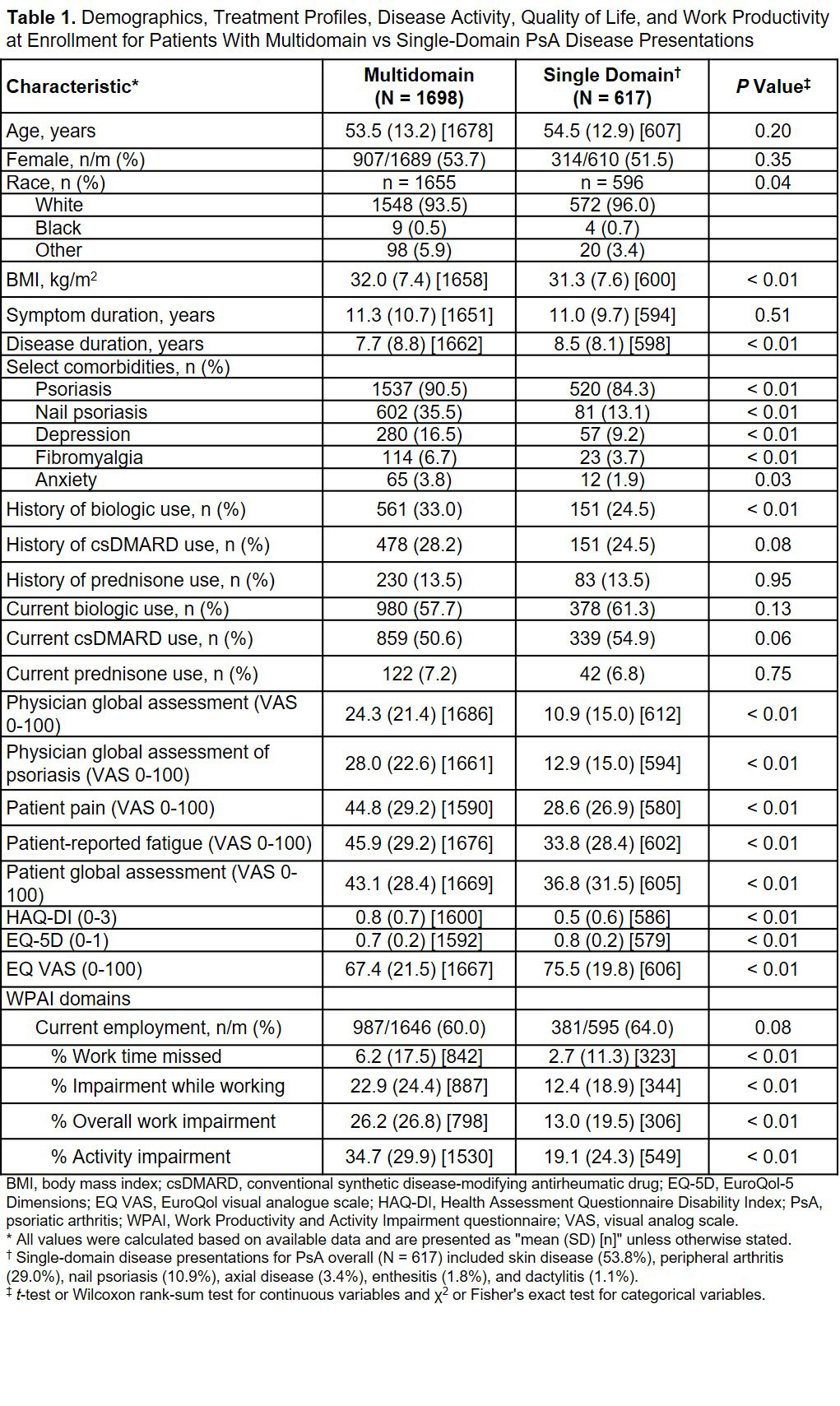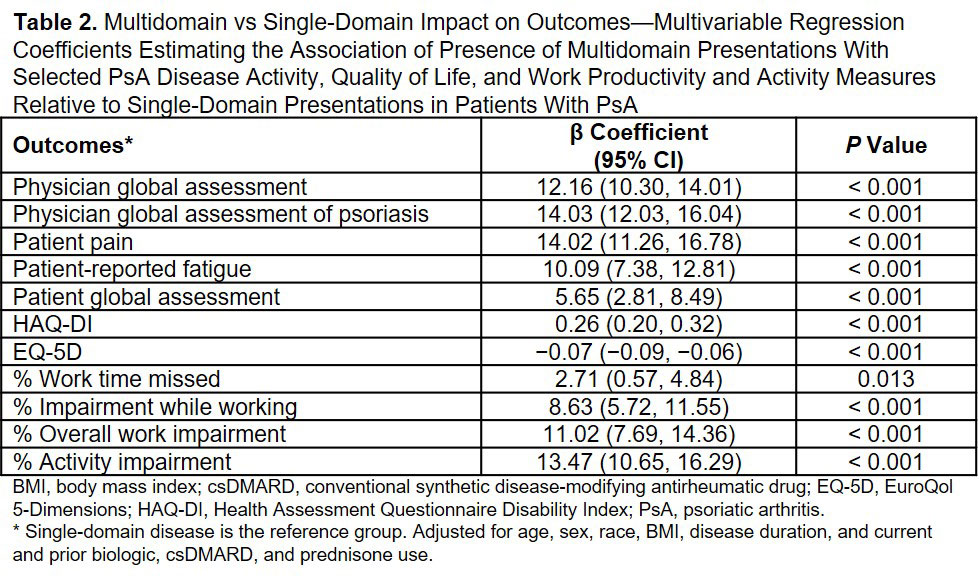Session Information
Session Type: Poster Session (Tuesday)
Session Time: 9:00AM-11:00AM
Background/Purpose: Psoriatic arthritis (PsA) is a chronic inflammatory disease with heterogeneous presentations that may involve peripheral arthritis, axial disease, enthesitis, dactylitis, and psoriatic skin and nail disease, either alone or in combination. Prior studies have characterized patients affected in one domain; however, there is limited evidence in understanding the differential impact of multidomain vs single-domain presentations on the overall disease burden in PsA. We aim to compare disease characteristics, quality of life, and work productivity at enrollment among patients with PsA who have multidomain vs single-domain presentations in the Corrona PsA/SpA Registry.
Methods: This study included adult patients with PsA enrolled in the Corrona PsA/SpA Registry between March 2013 and August 2018. Patients were evaluated for the presence of 6 disease domains at enrollment: enthesitis (SPARCC enthesitis count > 0), dactylitis (dactylitis count > 0), peripheral arthritis (PA; tender and/or swollen joint count > 0), nail psoriasis (global nail psoriasis VAS > 0), axial disease (physician-reported presence of spinal involvement, based on clinical judgment and/or radiographs or MRI showing sacroiliitis), and skin disease (BSA > 0%), and were further classified as having multidomain or single-domain disease presentations. Separate multivariable linear regression models evaluated the association of the presence of multidomain presentations with selected PsA disease characteristics, quality of life, and work productivity measures relative to single-domain presentations. Models were adjusted for age, sex, race, BMI, disease duration, and current and prior biologic, conventional synthetic disease-modifying antirheumatic drug, and prednisone use.
Results: Of 2315 patients with PsA enrolled in the Corrona PsA/SpA Registry who had ≥ 1 disease domain presentation, 1698 patients (73.3%) were classified as having multidomain disease presentations and 617 (26.7%) as single-domain presentations. The most common single-domain and multidomain presentations, respectively, were skin disease (12.7%) and PA + skin disease (11.7%). At enrollment, patients with multidomain presentations had higher BMI; shorter disease duration; were more likely to have fibromyalgia, depression, and anxiety; and were more likely to have prior biologic use vs those with single-domain presentations (Table 1). In adjusted analyses, the presence of multidomain presentations was associated with significantly worse patient and physician global assessment of disease, pain, fatigue, HAQ-DI and EQ-5D scores, and work productivity and activity at enrollment (Table 2).
Conclusion: In this US real-world cohort, nearly three-quarters of patients with PsA had multidomain disease presentations, which were associated with worse disease activity, quality of life, and work productivity measures compared with single-domain disease presentations. Assessing all PsA domains is critical for developing a comprehensive management plan and reducing the impact of PsA on patients’ lives.
To cite this abstract in AMA style:
Ogdie A, Hur P, Liu M, Rebello S, McLean R, Dube B, Glynn M, Mease P. Impact of Multidomain Disease Presentations on Overall Disease Burden Among Patients with Psoriatic Arthritis: Results from the Corrona Psoriatic Arthritis/Spondyloarthritis (PsA/SpA) Registry [abstract]. Arthritis Rheumatol. 2019; 71 (suppl 10). https://acrabstracts.org/abstract/impact-of-multidomain-disease-presentations-on-overall-disease-burden-among-patients-with-psoriatic-arthritis-results-from-the-corrona-psoriatic-arthritis-spondyloarthritis-psa-spa-registry/. Accessed .« Back to 2019 ACR/ARP Annual Meeting
ACR Meeting Abstracts - https://acrabstracts.org/abstract/impact-of-multidomain-disease-presentations-on-overall-disease-burden-among-patients-with-psoriatic-arthritis-results-from-the-corrona-psoriatic-arthritis-spondyloarthritis-psa-spa-registry/


